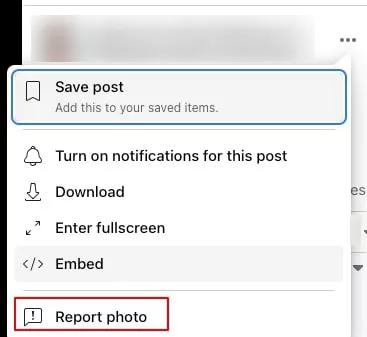
- Originally Published on November 15, 2022
My Ex Posted My Nudes Online: What Can I Do to Remove Them?
Have you ever Googled yourself, opened social media, or received a text message that made you realize intimate photos or videos of you are circulating online? There is nothing quite like that sinking feeling as you think to yourself—“My ex posted my nudes!”
No matter whether you sent the photos voluntarily or they were taken without your permission, it is considered revenge pornography if they were posted without your consent.
If your ex or another individual posted your nudes online without your permission, you may be able to file a civil lawsuit or a criminal complaint. Other non-litigation strategies to remove your intimate images or videos from the internet include:
- Report the explicit content to the platform or website where it is posted,
- Send a DMCA takedown notice to the infringing party, web host, search engine, or website where the content is posted, and
- Send a cease and desist letter to the perpetrator.
At Minc Law, we have years of experience helping victims of revenge pornography remove explicit content from revenge pornography sites and other platforms. We can pursue legal action and communicate with platforms, perpetrators, and law enforcement on behalf of our clients. It is our goal to provide empathetic and non-judgmental support and bring you peace of mind in this stressful and isolating situation.
In this article, we explain the basics of what constitutes revenge pornography and how to avoid having compromising photos published online without your consent. Then, we provide actionable tips for dealing with revenge pornography, both in and out of the courtroom.
The Basics: What is Revenge Pornography?
Revenge pornography is a burgeoning issue and is now all too common in the United States. An estimated one in 12 U.S. adults are victims of image-based abuse—and young people are the most common victims.
It is reported that people between 15-29 are the most likely to be threatened with revenge pornography, and young women are the most at risk with 10% of women under 30 experiencing threats of nonconsensual image sharing.
The LGBTQ+ community is also at a higher risk, with 17% reporting being at least threatened with revenge pornography.
This crime is also known as “nonconsensual pornography” and the “distribution of images without consent.” No matter the initial circumstances or if you willingly shared the images, if you are the victim of revenge pornography, you have legal rights and recourse. There are often ways to have the explicit content removed from the platform where it was posted—and depending on your situation, you may be able to file a civil lawsuit or a criminal complaint.
What Qualifies as Nonconsensual Pornography?
As revenge pornography removal attorneys, one of the most common questions we receive at Minc Law is, “Is what happened to me really revenge pornography?”
While the term “revenge pornography” suggests that it is always motivated by revenge (such as a spurned or angry lover), any nonconsensual distribution of sexually graphic images or videos may be considered revenge pornography.
Many revenge pornography cases involve perpetrators who do not know the victim personally. Even if you sent a nude photo or video voluntarily, it becomes revenge pornography if it is shared without your permission.
Below, we provide a few common scenarios that qualify as revenge pornography.
Nonconsensual Publication & Sharing of Confidential Sexts
Say you are sexting with a crush and eventually send nude images. You willingly shared intimate images and explicit conversations with that individual—but to your surprise, you later discover that those same images and screenshots have been posted on the internet for all to see.
It turns out your crush posted the images on several pornography sites without first asking you.
This scenario is unfortunately common; one study estimates that 12% of teens have forwarded sexts to others without consent. Whether the sexts were forwarded to a group chat or posted on a revenge pornography site, this act constitutes revenge pornography.
Hacked Private Nudes & Intimate Selfies
You took a few selfies on your phone that were meant to remain private. You considered sending them to your significant other, but you lost your nerve. You kept the images on your phone, thinking you might build up the courage to send the images one day.
Then, you receive a text or email alerting you that there are nude images of you online. The message demands money to take the images down.
When you follow the link in the message, you see that the images are the nude selfies you took but never sent! Your phone or cloud account was hacked—and the hacker posted your photos online for a sextortion scheme.
This type of sextortion is also on the rise. In fact, it is estimated that 43% of victims of revenge pornography report that their devices or accounts were hacked.
Nonconsensual Publication of Intimate Images on Shaming & Revenge Pornography Websites
You and your spouse have been married for a few years. You’ve recently formed a close friendship with a work colleague, which has led to an affair. Your spouse checks your phone one night while you are in the bathroom only to discover that you and your friend have been sexting back and forth.
In their rage and jealousy, your spouse sends themselves the images and shares the compromising photos and texts all over the internet–primarily on shaming, cheater, and revenge pornography websites. Your in-laws and once “mutual” friends jump on the gossip and share the images–which have now gone viral.
What Does Not Qualify as Revenge Pornography?
On the other hand, some scenarios involve intimate images but may not qualify as revenge pornography. The following scenarios may not fit the definition of nonconsensual pornography:
Authorized Release or Use of Photos
Say you visited your favorite tattoo studio for an intricate design on your ribcage. The tattoo turned out very well, and the studio asked to take a photo for their portfolio. Since the photo did not include your face, you agreed to sign a release form giving permission to use the image for advertising purposes.
But the studio is now using the image prominently in print and digital ads. Even though the image does not show anything explicit, soon everyone in your small town knows it is a picture of your nude torso. Your older relatives are giving you a hard time about the photo, and you are worried this publicity might affect your employment opportunities.
While this situation is uncomfortable, it does not qualify as revenge pornography.
Consensual Paid Pornography
Say you sold a few nude photos to an online pornography site several years ago. Getting older and starting a family has made you wish you could remove those images from the internet—and while you may still have some options to remove or suppress them, your situation does not fit the definition of revenge pornography.
If you are experiencing a situation like the ones above, you should speak to an attorney about your options. Make sure to bring a copy of the image release contract, if you signed one.
Keep in mind that most situations involving the distribution of intimate images or videos are not always clear, so reaching out to an experienced internet attorney is critical.
What Are Personal & Professional Implications of Your Nudes Being Posted Online?
Revenge pornography may have severe consequences on victims’ social lives, relationships, and mental health. Many victims experience effects such as:
- Damaged relationships with romantic partners,
- Alienation from or conflict with family and friends,
- Lost job opportunities,
- High costs to remove content from the internet, and
- Mental health effects like depression, anxiety, and PTSD.
Steps to Prevent Becoming a Victim of Revenge Pornography in the Future
Revenge pornography is a crime, and only the perpetrator is responsible for their heinous actions. However, it is possible to make it less likely that you will be targeted by such individuals.
In this section, we provide tips for keeping your private images safe from unscrupulous actors.
What Can You Do to Avoid Having Compromising Pictures Put Online?
The best way to ensure you do not have compromising images of yourself on the internet is to avoid taking them or sharing them in the first place.
However, this advice may not always be practical. If these images do exist, do not upload or back them up to the cloud. There is a chance that your cloud could be hacked even if you do not share these photos yourself.
At Minc Law, we have noticed a recent trend where hackers steal intimate content from Snapchat accounts. Many users think sending nude photos over Snapchat is safe because the platform does not allow you to save photos, and messages disappear quickly.
However, if you are storing your photos on Snapchat (or leave Snapchat connected to your camera roll), you are at risk of malicious actors hacking your account and stealing those photos.
We recommend taking the following steps to protect your privacy:
- Never share your passwords, even with people you trust.
- Lock your phone and computer whenever you are not using them
- Use security software on all of your devices
- Password-protect sensitive files on your hard drive (and do not store these files on the cloud),
- Conduct a reverse image search in Google to check whether images of you are online
- Cultivate a positive online footprint so that revenge pornography does less damage to your reputation
- Obtain the copyrights to any personal photos of you that you did not take
If you do share nude or intimate photos of yourself, be sure only to do it on your own terms. If someone is trying to convince you to share intimate photos or content when you are not ready, this should be a red flag. And if you are underage, report this behavior to an adult right away.
How Can an Ex Abuse You Online With Private or Explicit Content?
There are several ways a previous romantic partner with access to your private or intimate images can abuse you. They may try to emotionally or financially blackmail you, or take revenge by sending the images to your friends, family, or employer. Some exes even try to monetize the images by uploading them to popular pornography websites.
At Minc Law, we have seen many cases of blackmail from ex-partners. Commonly, these blackmailers either demand that their victims pay them or get back together with them to avoid the images being shared online.
What Can You Do if Someone is Threatening to Post Pictures of You?
Many perpetrators of revenge pornography start by making threats against the victim. They may demand money, more sexual content, or sexual favors in exchange for not posting the images online.
These threats to distribute nonconsensual pornography are a crime—even if they never follow through, and even in states that do not have dedicated revenge pornography laws. A perpetrator may be guilty of criminal coercion if they make threats purposefully restricting your freedom of action to your detriment. The perpetrator tries to control you through fear that they will commit a criminal offense against you, accuse you of a crime, or expose a secret that would cause you reputational or real-world harm.
Some of our clients have expressed concern over their exes simply having compromising photos in their possession. These exes have not (yet) made any threats to share the images, but our clients are nervous about what may happen in the future. Simply knowing that your ex-partner has nude photos could be a cause of mental anguish.
But unfortunately, you do not have much legal recourse unless they try to blackmail or extort you with the photos. The simple possession of these types of photos is not illegal—unless you were underage at the time they were taken.
If you are worried about the potential for revenge pornography in the future, you may want to consider subscribing to an online monitoring service like PimEyes or Minc Law’s Digital Risk Protection. These services can provide you with some peace of mind knowing that if photos of you are posted online, you will know about it right away.
Legal Action You Can Take If Your Ex Posted Your Nudes Online
If you have discovered explicit photos or videos online that were posted without your consent, you should act quickly to document evidence and protect your own privacy. Then, you should reach out to an internet attorney and, if appropriate, law enforcement to initiate legal action.
What Are the First Steps to Take When You Find Your Nudes Posted Online?
Before taking legal action, you should take the following steps to protect yourself and prepare for a potential lawsuit:
- Document evidence of the revenge pornography and any communication with the perpetrator,
- Secure your social media and online accounts,
- Report the post or images to the platform, and
- Backtrack the photos to find the source and monitor for future publication.
Document Everything
If you decide to pursue legal action against the perpetrator, you do not want to risk them deleting the evidence before you have a chance to save it. Preserve a copy of the content as soon as possible.
Take screenshots of all pages and links as evidence. If the perpetrator has contacted you demanding some form of payment or ransom, preserve evidence of these communications as well. Save these documents to your hard drive or a flash drive, or print copies of the evidence.
Secure Social Media & Online Privacy Settings & Accounts
Most social media platforms allow users to decide who can view their posts and profile details. If you are the subject of revenge pornography, set all of your online accounts to private and maximize all privacy settings.
The goal is to make it as difficult as possible for the perpetrator to find your closest contacts or learn any more private information about you.
Report the Post Via the Platform or Website
If the nude photos were posted on a social media site or platform other than a revenge pornography site, it is likely that the content violates the platform’s Terms of Use. One free and easy way to get this type of content removed is to report it to the platform where it was posted.
Backtrack Images to Find the Source & Monitor the Internet
Sometimes if you find a nude or intimate image of yourself, you may not know who posted it. In these cases, you may need to do a bit of digging (or hire an experienced internet attorney) to uncover the identity of the anonymous poster.
Useful steps you can take on your own include:
- Use Whoishostingthis.com to find the hosting provider and Whois record for the website where the image was posted, and
- Conduct a Google Reverse Image search to find the original source of the image online.
What Are Your Legal Options When Your Nudes Have Already Been Illegally Posted?
Discovering explicit images of yourself online can be a shocking and disturbing experience. You might be able to have the content removed using reporting methods outlined above—but in many cases, this may not be enough.
In this section, we outline both criminal and civil avenues for obtaining a court order to require the poster or platform to remove the content.
Criminal Claims
Whether you have a criminal claim against the perpetrator depends on where both of you live, as well as whether you were underage when the photos were taken.
If you were under 18 when the content was created, that content is considered child pornography—which is a very serious crime. State laws for child pornography may vary, but the legal consequences for perpetrators are always severe.
Even if you were an adult when the photos were taken, you may have a criminal claim against the perpetrator. As of the date of publication, 48 states and the District of Columbia have laws criminalizing nonconsensual pornography. Perpetrators can be faced with large fines and/or jail sentences.
The district attorney and law enforcement in your jurisdiction prosecute these types of cases, so it is best to contact your local police as a first step. You are not required to pay for this service or retain a private attorney to file a criminal complaint. However, an attorney can help you speak with investigators, compile evidence, and expedite the case.
Civil Lawsuit
Bringing a civil claim on its own will not result in the perpetrator being jailed, but you may be awarded monetary damages as part of a settlement or at the end of the civil lawsuit. The judge may also issue a court order requiring the content’s removal from the website(s) where it was posted.
Unlike a criminal case, however, you will need a private attorney’s help in bringing a civil claim of nonconsensual pornography.
Only 12 states have civil laws addressing nonconsensual pornography; however, you can possibly make other civil claims to sue the perpetrator in any state. For example, you may choose to sue for intentional infliction of emotional distress. You could also bring a claim under privacy torts like invasion of privacy, false light, and misappropriation.
Keep in mind that in most cases, you cannot sue the website or platform where the explicit images were posted. Many of the sites where individuals post nonconsensual pornography are considered “user-submitted content” sites, which means they are protected by Section 230 of the Communications Decency Act. If you try to bring a claim against the platform, you risk the case being dismissed right away.
Instead, you should sue the individual who posted the content. If you do not know who the perpetrator is, there are a few ways to learn their identity. To learn more, see our article, “How to Identify Anonymous Online Posters.”
How to Remove Your Nudes From the Internet Without Litigation
You may be able to remove explicit images from the internet without filing suit and taking the matter to court. Many of our clients are not concerned with seeking monetary restitution or punishment for the perpetrator; they simply want the content taken down.
If that is the case, one of the methods below may be a faster and cheaper solution.
Reporting to the Platform, Website, or Search Engine
As mentioned above, many social media platforms have guidelines restricting the types of content that can be shared on their website. If the content violates the platform’s Terms of Service, you may be able to ask the platform moderators to delete it for you.
For example, to report a photo or video that contains adult content on Facebook, take the following steps:
- Click on the photo or video in question to expand it. If the poster’s profile is locked and you cannot expand the image, click Find support or report photo.
- Click the three dots to the upper right of the post or image. Click Report Photo for photos and Report Video for videos.
- Follow the on-screen instructions to add context and explain why you are reporting the image.

You can also report non-consensual pornography to search engines like Google and Bing. While the search engine may remove the content from its search results, that does not remove the content from its source. That is why we recommend removing content from the source platform first.
Before flagging content to the platform, it is a good idea to reach out to an attorney for help. An experienced content removal attorney can help you compile evidence in chronological order, explore appropriate reporting options, and navigate reporting procedures effectively.
Send a DMCA Takedown Request
If you took the photos or videos yourself, you own the copyright to that work, even if you did not register it with the U.S. Copyright Office. The Digital Millennium Copyright Act (DMCA) regulates the digital reproduction of copyrighted material—which means that you can use it to combat nonconsensual pornography.
Sending a DMCA takedown notice to the infringing party, web host, or website where the unlawful content is an effective method to remove content from the internet, and you may not even need an attorney’s help to send one.
However, sending a DMCA takedown notice by yourself may sometimes do more harm than good, so it is crucial to speak to an experienced internet attorney.
Send a Cease & Desist Letter
If you know the identity of the person who is uploading or posting the photos, you can send them a cease and desist letter. These letters demand that the recipient stop their potentially unlawful or objectionable behavior, otherwise you will take legal action against them.
While these letters are often a faster and easier solution than filing a lawsuit, they still require substantial expertise and effort to be effective. We recommend working with an experienced internet defamation and privacy attorney to draft a cease and desist letter for revenge pornography.
Where Can You Seek Counsel if You Are Being Harassed or Targeted By an Ex?
It may be difficult to find an attorney to represent you in a revenge pornography or sextortion case. To ensure you find a legal team with the necessary resources and experience, we recommend the following:
- Call or visit the website of your local bar association,
- Use attorney directories and search tools like Avvo.com or Lawyers.com to read reviews and check credentials, and/or
- Call Minc Law at (216) 373-7706—we can help!
Additional Resources to Help You Through This
Being the victim of revenge pornography can be an extremely isolating and confusing experience. If you need additional support, we recommend reaching out to the following helplines and resource hubs:
- Without My Consent: Educational materials and practical resources for victims of nonconsensual pornography.
- The Cyber Civil Rights Initiative: An advocacy organization that maintains a 24-hour Crisis Helpline for victims of nonconsensual pornography at 844-878-2274.
- The California Attorney General’s office website on cyber exploitation: resources for victims, tools for law enforcement, and links to privacy and removal policies.
We Can Help Remove Revenge Pornography From the Internet
We know how devastating it can be to find images or videos that you sent to someone in confidence posted on the web. If your ex or another perpetrator posted your intimate images, videos, or content to the internet, we can help.
At Minc Law, we have extensive experience helping targes of nonconsensual pornography remove intimate content from the web and pursuing legal action to hold perpetrators accountable for their actions.
★★★★★
“Melanie and the team at Minc did a great job taking offensive posts down of several websites. Quick and efficient, with good communication during the whole process. I can’t thank them enough!”Anonymous
Jan 22, 2021
Reach out to schedule your initial, no-obligation consultation with an intake specialist by calling us at (216) 373-7706, speaking with a Chat representative, or filling out our online contact form.
Get Your Free Case Review
Fill out the form below, and our team will review your information to discuss the best options for your situation.
This page has been peer-reviewed, fact-checked, and edited by qualified attorneys to ensure substantive accuracy and coverage.




